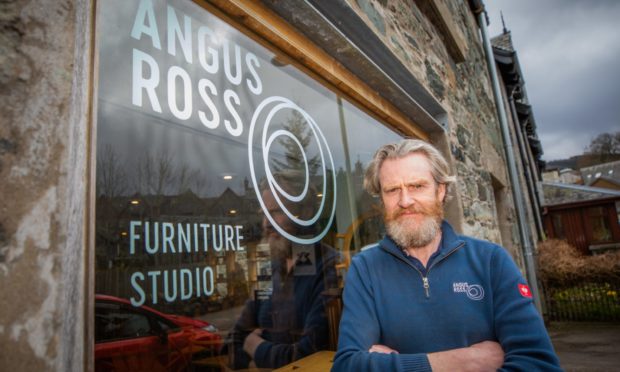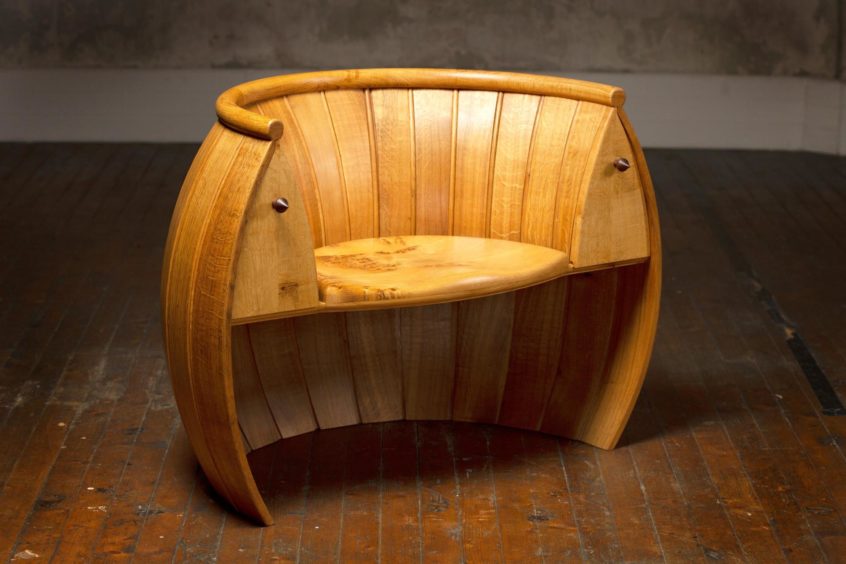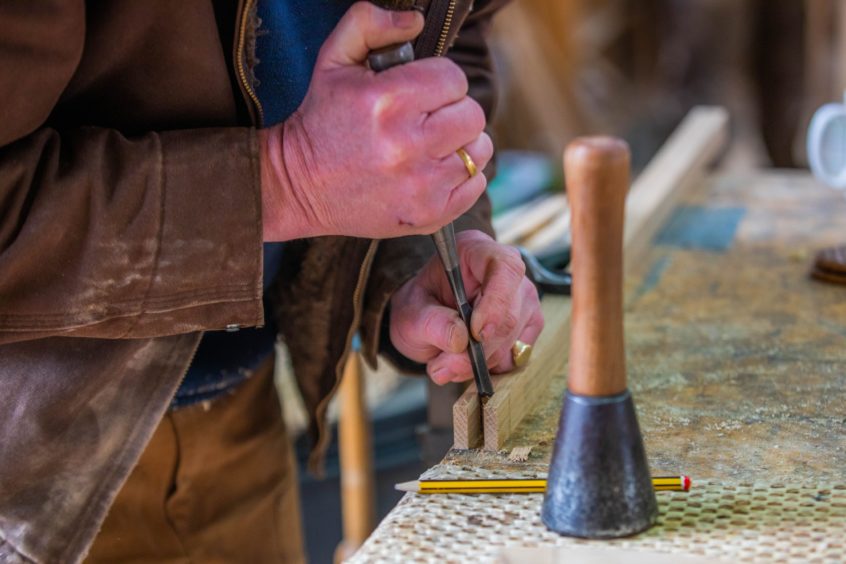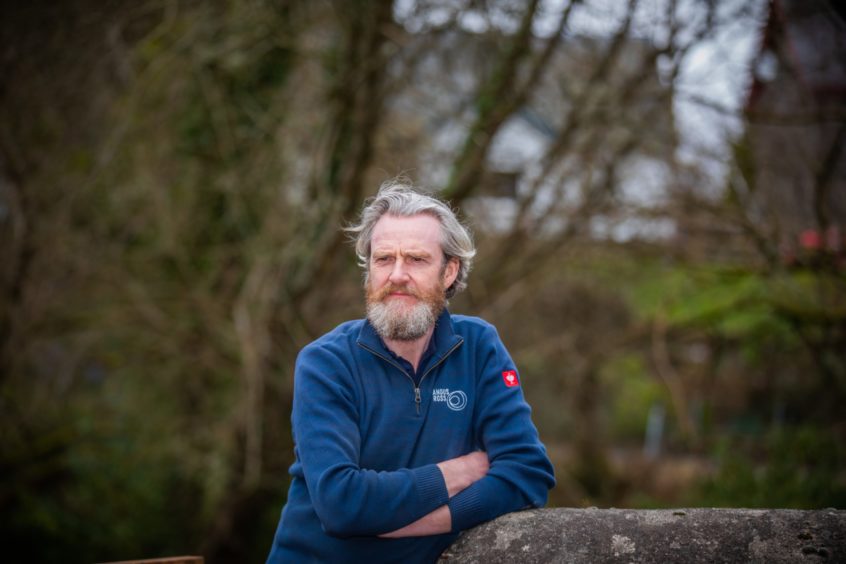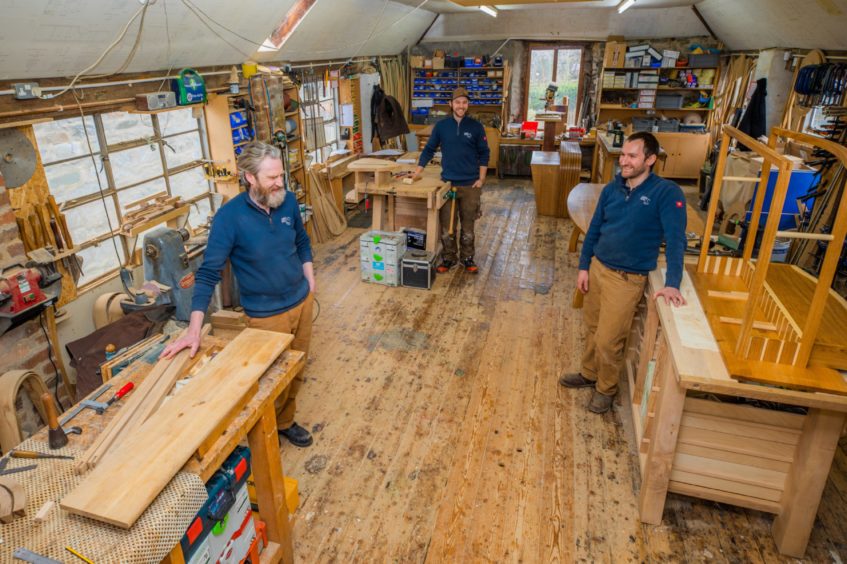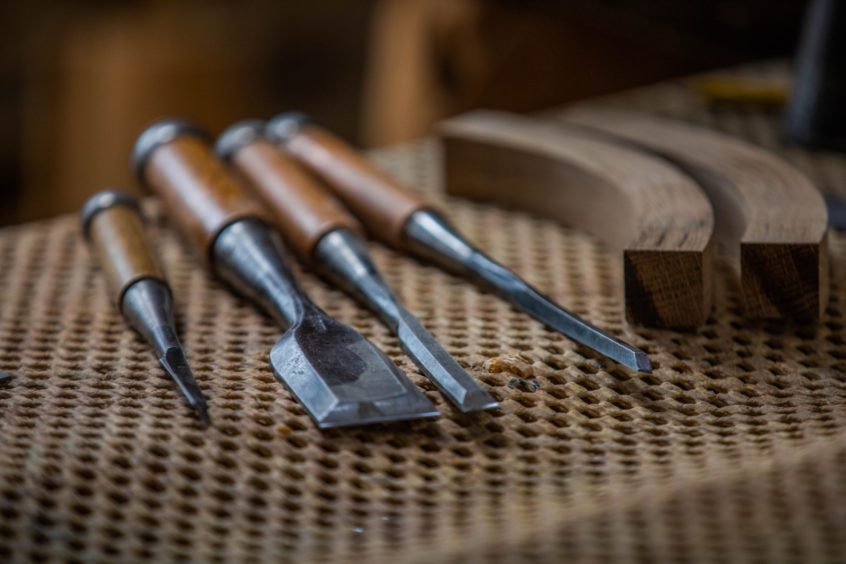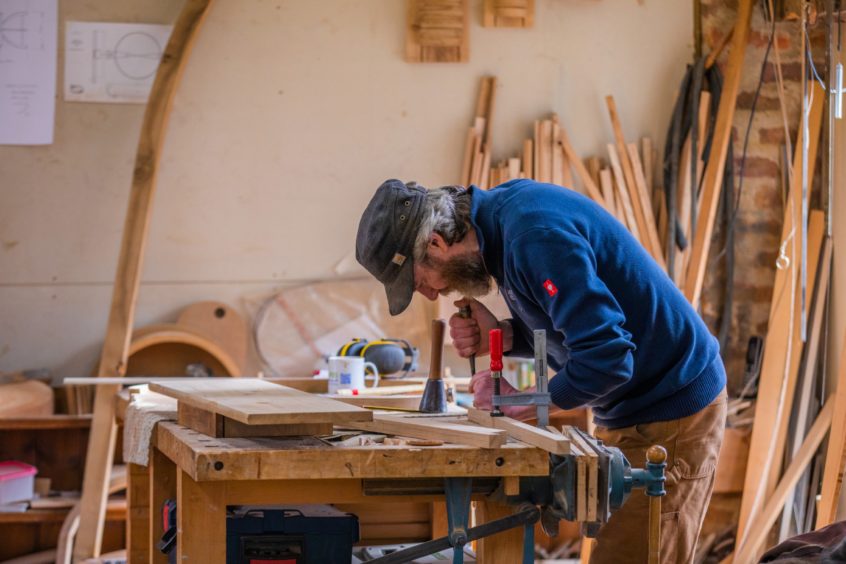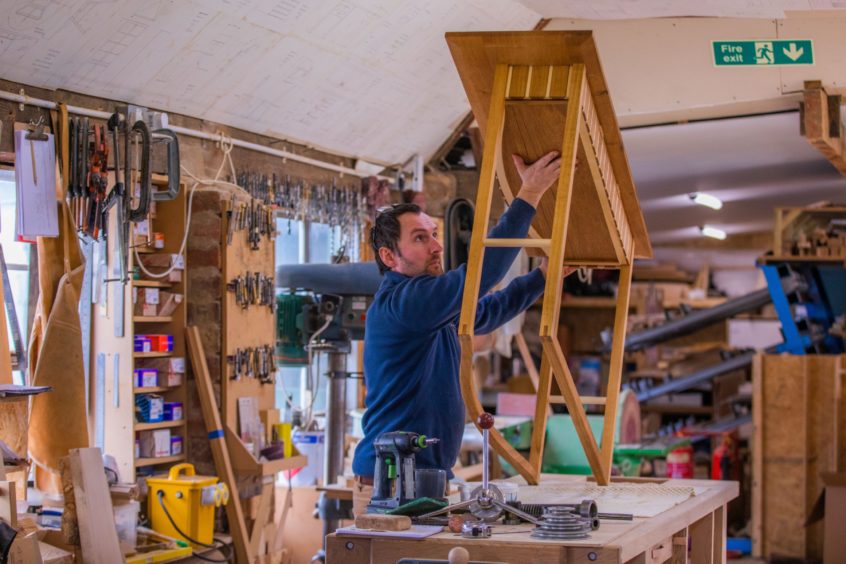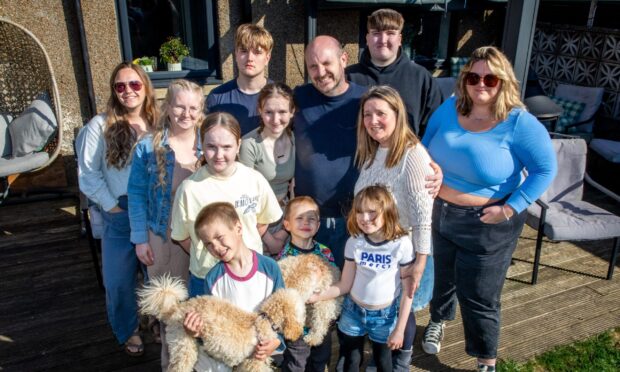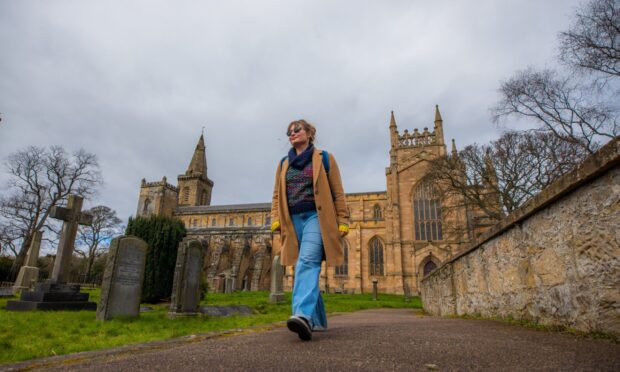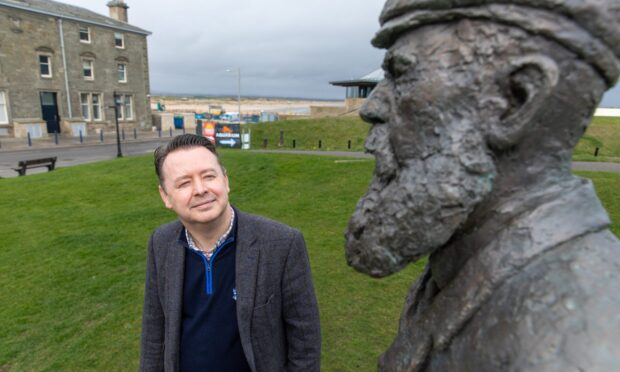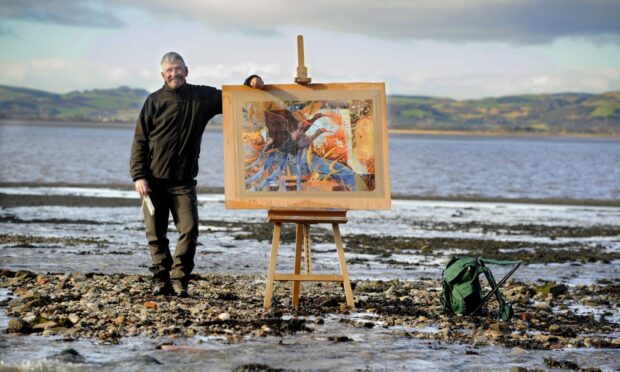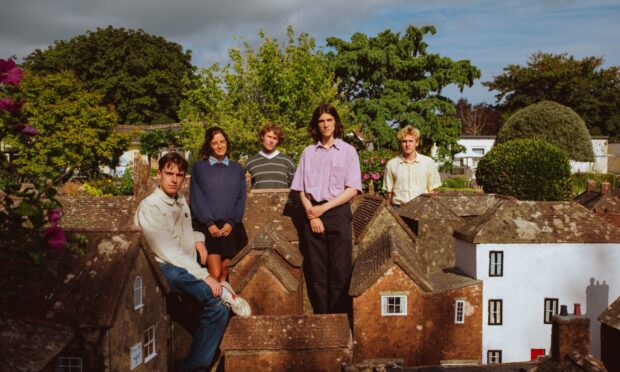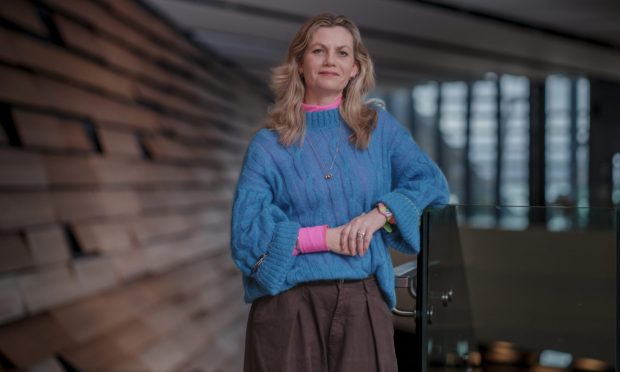Furniture-making, as with much labour-intensive craft, tends to be a somewhat solitary pursuit, so Aberfeldy-based woodworker Angus Ross was a bit frustrated to learn a planned group show in Edinburgh he was due to participate in had been forced to go online.
Organised by Scottish Furniture Makers Association and Visual Arts Scotland, Adjust/Adapt was due to open at Edinburgh’s City Art Gallery. Instead, due to Covid restrictions, the exhibition is taking place in the digital realm, meaning we’ll have to appreciate its selection of specially devised pieces by homegrown makers featuring desks, cupboards and other covetable items from afar. But at least we can still see them.
On a Zoom call from his light and inviting Perthshire workshop, unfortunately still closed to visitors, Angus explains that he would not have had a problem with visitors wanting to sit in his contribution, a chair that comfortably curves round its occupant.
“When we use wood there’s a tactile quality, so you really have to sit in a piece or look at it up close. Curators tend to put pieces like that on plinths to discourage the public, though if anyone was particularly interested I would let them try it out.”
Angus’s throne-like Sutherland Chair had been selected as a highlight of this showcase of Scottish talent that playfully meets the brief of responding to our changed lives under pandemic conditions, its creator explains.
“A lot of the focus has been on people sitting at home, so what I was trying to create was a sculptural piece that people would get a lot of satisfaction from sitting in. It’s quite a big piece with a presence to it, so you can feel comfortable.”
Its low back, at the same height as the chair’s arms, so still supportive, comes from a style that originally came with Viking settlers and was once prevalent in north east Scotland, hence its name. Indeed, finding inspiration in local traditions is an ongoing theme in Angus’s work. Take the addition of storage in the chair’s frame, which can handily accommodate a bottle of whisky, with flaps that come down as rests for books or tumblers. This emerged through research at the Highland Folk Museum in Newtonmore, the craftsman admits.
“They have a fantastic repository of traditional Scottish furniture. A lot of homes would have had one master chair for the head of the household, which often had a little drawer underneath the seat that normally would have held a bible. Though I was more thinking about a little bottle of something in the side.”
What Angus really misses, with the show now accessible online, is meeting peers from his specialist trade.
“It’s great when we have these collective exhibitions, because it’s nice to see what people have been up to, because a lot of the time we are tucked away in our own workshops. We don’t have the opportunity to mingle, chat and see things together.”
Thankfully, Angus has been able to continue his business during lockdown, well-established as a designer and creator of bespoke furniture, with a workforce of six, including himself, plus a Gordon Setter, named Gordon. Next year is set to be the 20th anniversary of his Aberfeldy premises. From small beginnings, he has developed a burgeoning reputation, supplying elegant Charles Rennie Mackintosh chairs for the art nouveau Willow Tea Rooms in Glasgow and he can even boast a piece – one of his rocking Unstable Stools – in V&A Dundee’s Scottish Design Galleries.
Angus finds much of his inspiration in the surrounding Tay valley – his workshop backs onto Aberfeldy’s picturesque Moness Burn. In fact, much of the timber he uses comes from close by, including a 55-acre oak wood part-owned by the artisan along with four other families on the banks of the Tay near Grandtully. Angus was invited to take a share of the forest in 2005, when local foresters found an opportunity to purchase their own land, and he has since found working in close cooperation with them means his enterprise acts as a shining example of sustainable forest management.
“They wanted to link forestry with the workshop, so we could get more involved with the wood from start to finish,” Angus says. It means he can choose the most suitable timber to reduce wastage, even if this wood might show more knots and other markings than usually associated with bespoke furniture.
“It hasn’t been looked after like the French oak that has been managed for hundreds of years, so you get nice straight trees. We’re trying to use local timber that has a lot more character, work with it and celebrate that; and hopefully encourage people to think that this is not a second-class product.”
Angus’s distinctive rounded forms come from an ancient technique – steaming. Wetting pieces of timber in a giant kettle to bend them to the required shape was a skill normally used around these parts to fashion planks for boat building or coopering barrels, another inspiration for his Sutherland Chair’s curves.
While steaming has fallen out of use in favour of more efficient industrial processes, Angus has added his own contemporary twist: steaming green, or undried wood, as with the Unstable Stool. This means the wood is seasoned as it is bent into shape making it robust enough for practical use.
“It means we can use the timber quicker by steam-bending it, so again that has an environmental advantage, because there’s less processing.”
There is one drawback, though, in that pieces of wood bend differently. So to make a batch of stools, Angus might need to manipulate 30 or 40 pieces of timber then pair them up to see which match.
Raised in Inverness, Angus thanks his father for passing down the craft bug. He had his own workshop at home where he specialised in metalwork, casting military badges and tourist souvenirs.
Having studied industrial design at Napier University, Edinburgh, Angus originally began devising plastic products for firms such as Boots and Mothercare, everyday items such as toys, potties and pushchairs. He became disillusioned with this promising career in 1988, while on voluntary service in a northern region of Kenya near Lake Turkana.
“Working with people in a remote area, I began to understand a bit more about the consumerist society and how little a lot of people lived on and how little you actually need. You also see such a lot of plastic waste, just discarded and left around. That started me going off plastics.”
Seeking to move into a more environmentally sound area, Angus decided he should learn about wood as a raw material he could design with instead. He signed up for a cabinetmaking course in Oxford, soon finding himself drawn to the idea of building things himself, celebrating the skills involved and sense of tradition.
“Initially I wasn’t that interested in wood itself, it was more about the design, but the course sparked a love of wood. It took me back to pootling around in my father’s workshop. I realised that working as a designer for eight years I had got out of the swing of using my own hands.”
After completing the course, Angus and two fellow students set up a workshop in the nearby Chiltern Hills. Based an hour and a half’s drive from London, he found city clients would enjoy coming to visit on weekends, perhaps taking in a walk and a fine pub lunch. This provided a blueprint for his return to Scotland, just before his children started school.
We drew a line from Loch Lomond right across to the Angus glens and Forfar, but ended up finding the workshop here – before our house
“We thought most [prospective clients] are Edinburgh or Glasgow-based, so the bulk of our work would come from there, but would go to a nice place for a day out; so we drew a line from Loch Lomond right across to the Angus glens and Forfar, but ended up finding the workshop here – before our house,” Angus laughs, “as a workshop is harder to find.”
When Angus refers to “we” he means himself and and his wife Lorna, who takes charge of much of the administration and marketing roles in this family business. With her help, the workshop goes from strength to strength.
A current project involves providing furniture for the refurbished Hull Maritime Museum, though nothing seems to give him greater pleasure than meeting new clients and championing the pleasure of custom-made furniture – apart, of course, from working with this living material itself.
Adjust/Adapt runs until April 24 at www.scottishfurnituremakers.org.uk
